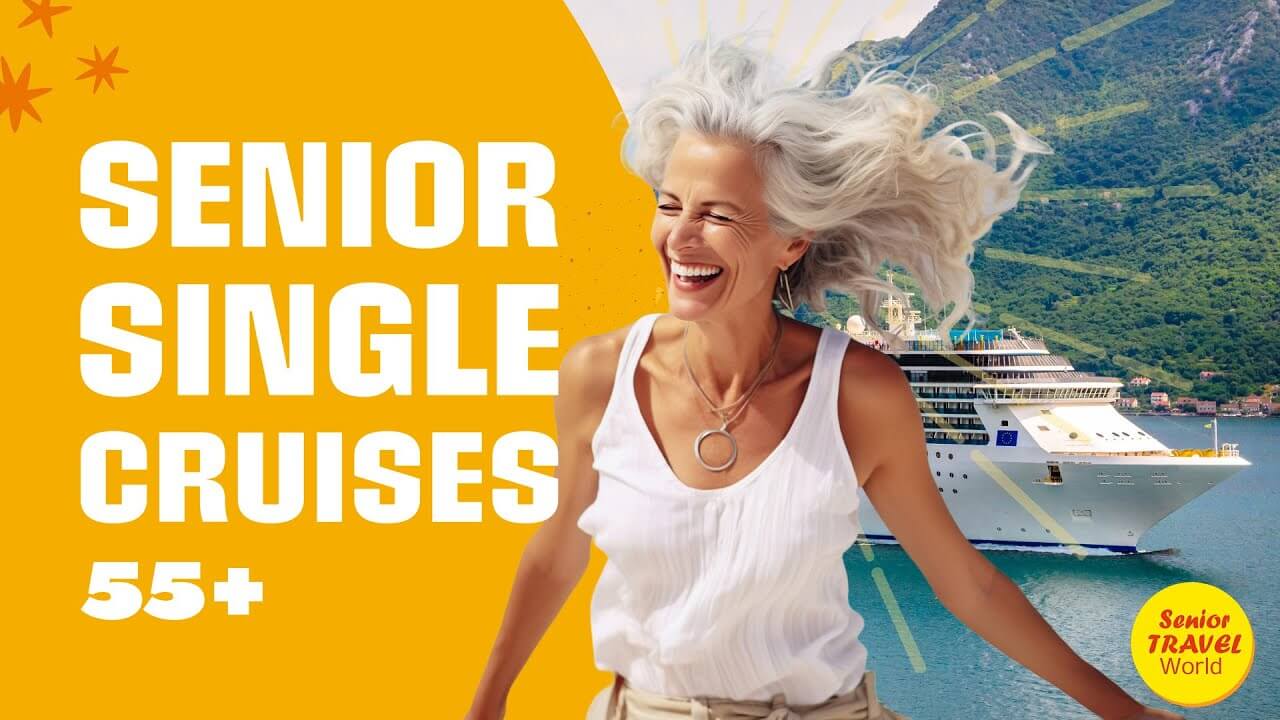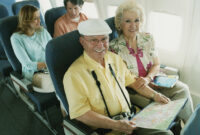Trips for single seniors offer a unique opportunity for adventure, relaxation, and self-discovery. Whether you crave exploring ancient ruins, lounging on pristine beaches, or immersing yourself in vibrant cultures, travel tailored to the needs and interests of single seniors opens doors to unforgettable experiences. This guide explores various trip types, safety considerations, budgeting strategies, and ways to foster companionship while traveling solo, ensuring a fulfilling and enriching journey.
From carefully curated itineraries to practical tips on managing finances and health concerns, we aim to empower single seniors to embark on the adventure of a lifetime, confident and prepared. We delve into diverse transportation and accommodation options, providing detailed comparisons to help you choose what best suits your preferences and budget. We’ll also highlight the unique social aspects of solo travel and how to make the most of your time, creating memories that will last a lifetime.
Health and Wellness Considerations
Traveling can be an exciting and enriching experience for single seniors, but it’s crucial to prioritize health and well-being throughout the journey. Planning ahead and taking proactive measures can significantly reduce potential health risks and ensure a safe and enjoyable trip. This section outlines key health considerations and strategies for mitigating risks associated with senior solo travel.
Planning for potential health issues is paramount for single seniors traveling alone. The absence of a travel companion means relying solely on oneself for managing any health emergencies. This necessitates a more comprehensive approach to health preparation and risk mitigation than might be needed for group travel.
Potential Health Concerns and Risk Mitigation Strategies
Several health concerns are unique or heightened for single seniors traveling independently. These include falls, exacerbations of pre-existing conditions (such as heart disease or respiratory issues), medication management challenges, and access to timely medical care in unfamiliar environments. Mitigating these risks involves careful trip planning, packing appropriate medical supplies, and understanding local healthcare resources. For example, choosing accommodations with easy access and minimal stairs can reduce the risk of falls. Packing a well-stocked first-aid kit and familiar medications, along with copies of medical records, can significantly reduce the impact of unexpected health events. Furthermore, researching the availability of local healthcare providers and emergency services before departure ensures a smoother response in case of a medical emergency.
The Importance of Travel Insurance and Necessary Health Precautions
Comprehensive travel insurance is not a luxury but a necessity for single seniors traveling abroad or even domestically. It provides crucial financial protection against unexpected medical expenses, trip cancellations, and lost luggage – all situations that can be particularly challenging to manage alone. Pre-trip health precautions are equally important. This includes consulting with one’s physician to discuss any pre-existing conditions, necessary vaccinations, and recommended medications. The physician can provide guidance on managing medications during travel and offer advice on adapting routines to the travel schedule. During the trip, maintaining a healthy lifestyle – including regular exercise, hydration, and sensible eating habits – can help prevent illness and maintain energy levels. After the trip, follow-up appointments with healthcare providers can address any health issues that may have arisen during travel. For instance, a traveler might schedule a check-up after returning from a trip to a region with potential infectious diseases.
Essential Health Items and Medications Checklist
Before embarking on a journey, single seniors should compile a comprehensive checklist of essential health items and medications. This checklist should be tailored to their specific needs and pre-existing conditions. It’s crucial to carry sufficient quantities of prescription medications, accompanied by copies of prescriptions. Over-the-counter medications for common ailments like pain, indigestion, and allergies should also be included. Other essential items include a well-stocked first-aid kit containing bandages, antiseptic wipes, pain relievers, and any other personal medical supplies. A thermometer, blood pressure monitor (if needed), and any assistive devices should also be considered. It is also wise to include a list of emergency contacts and relevant medical information, including allergies and pre-existing conditions, to be easily accessible in case of an emergency. Remember to check medication expiry dates before packing.
Accommodation Choices
Choosing the right accommodation is crucial for a relaxing and enjoyable solo senior travel experience. The ideal choice will depend on your budget, desired level of independence, and personal preferences. Several options cater specifically to the needs and preferences of single seniors, each offering a unique set of advantages and disadvantages.
Accommodation options for single seniors are diverse, ranging from the familiar comfort of hotels to the independent freedom of vacation rentals. Careful consideration of factors such as accessibility, amenities, and proximity to healthcare services is paramount. The following sections detail the benefits and drawbacks of various accommodation types, aiming to help you make an informed decision.
Hotel Accommodations
Hotels offer a wide range of options, from budget-friendly chains to luxurious boutique hotels. Many hotels provide single occupancy rates, avoiding the need to pay for an unused double room. However, some hotels may lack specific amenities tailored to seniors’ needs.
Benefits include readily available services like housekeeping, room service, and often, on-site restaurants. Drawbacks might include a lack of kitchen facilities for those preferring self-catering and potentially higher costs compared to other options for extended stays.
Resorts
Resorts often offer all-inclusive packages that can simplify trip planning and budgeting. Many cater to an older demographic, providing amenities such as swimming pools, spas, and organized activities. However, resorts can be expensive and may lack the privacy and independence of other accommodation types. All-inclusive packages may limit dining options, and the resort’s social atmosphere may not appeal to all.
Vacation Rentals
Vacation rentals, such as apartments or houses, provide greater independence and flexibility. They often include kitchen facilities, allowing for self-catering, and can be more cost-effective for longer stays. However, they typically lack the services offered by hotels or resorts, such as daily housekeeping. Accessibility features may also vary greatly depending on the specific property.
Senior-Friendly Lodgings
Some lodgings specifically cater to the needs of older adults. These may offer features such as grab bars in bathrooms, wider doorways, and emergency call systems. They often have staff trained to assist with any medical needs. While offering excellent support, these specialized accommodations can be more expensive than other options.
Essential Features for Senior-Friendly Accommodations
Selecting accommodation with specific features enhances safety and comfort for solo senior travelers. Consider the following when making your choice:
- Accessibility Features: This includes features such as ramps, elevators, grab bars in bathrooms, and roll-in showers. Many accommodations now offer adaptive equipment upon request, such as raised toilet seats or shower chairs.
- Medical Assistance: Proximity to medical facilities and the availability of on-site medical personnel or easy access to emergency services are critical considerations.
- Safety Measures: Well-lit walkways, secure entrances, and 24-hour security can significantly enhance peace of mind. Consider accommodations with emergency call systems in rooms.
- Convenient Amenities: Proximity to restaurants, shops, and transportation options is important for those with limited mobility. On-site amenities like laundry facilities and dining options can also enhance convenience.
- Social Opportunities (Optional): Some seniors appreciate opportunities for socializing, while others prefer more seclusion. Consider whether the accommodation offers communal areas or organized activities.
Epilogue
Embarking on a trip as a single senior is an empowering experience, filled with opportunities for personal growth, exploration, and connection. By carefully planning your journey, prioritizing safety, and embracing the unique aspects of solo travel, you can create a truly memorable and fulfilling adventure. Remember, the world is waiting to be explored, and your journey is just beginning. With the right preparation and a sense of adventure, your trip will be a testament to the boundless possibilities that await single seniors.




